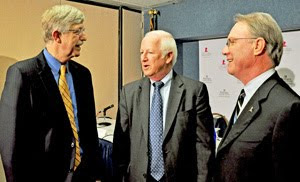 Washington University School of Medicine in St. Louis and St. Jude Children's Research Hospital have announced an unprecedented effort to identify the genetic changes that give rise to some of the world’s deadliest childhood cancers. The team has joined forces to decode the genomes of more than 600 childhood cancer patients, who have contributed tumor samples for this historic effort.
Washington University School of Medicine in St. Louis and St. Jude Children's Research Hospital have announced an unprecedented effort to identify the genetic changes that give rise to some of the world’s deadliest childhood cancers. The team has joined forces to decode the genomes of more than 600 childhood cancer patients, who have contributed tumor samples for this historic effort.The St. Jude Children’s Research Hospital-Washington University Pediatric Cancer Genome Project is the largest investment to date — estimated to cost $65 million over three years — aimed at understanding the genetic origins of childhood cancers. Scientists involved in the project will sequence the entire genomes of both normal and cancer cells from each patient, comparing differences in the DNA to identify genetic mistakes that lead to cancer. Kay Jewelers, a long-standing supporter of St. Jude Children’s Research Hospital, has committed to providing $20 million as lead sponsor of this project.
READ MORE




